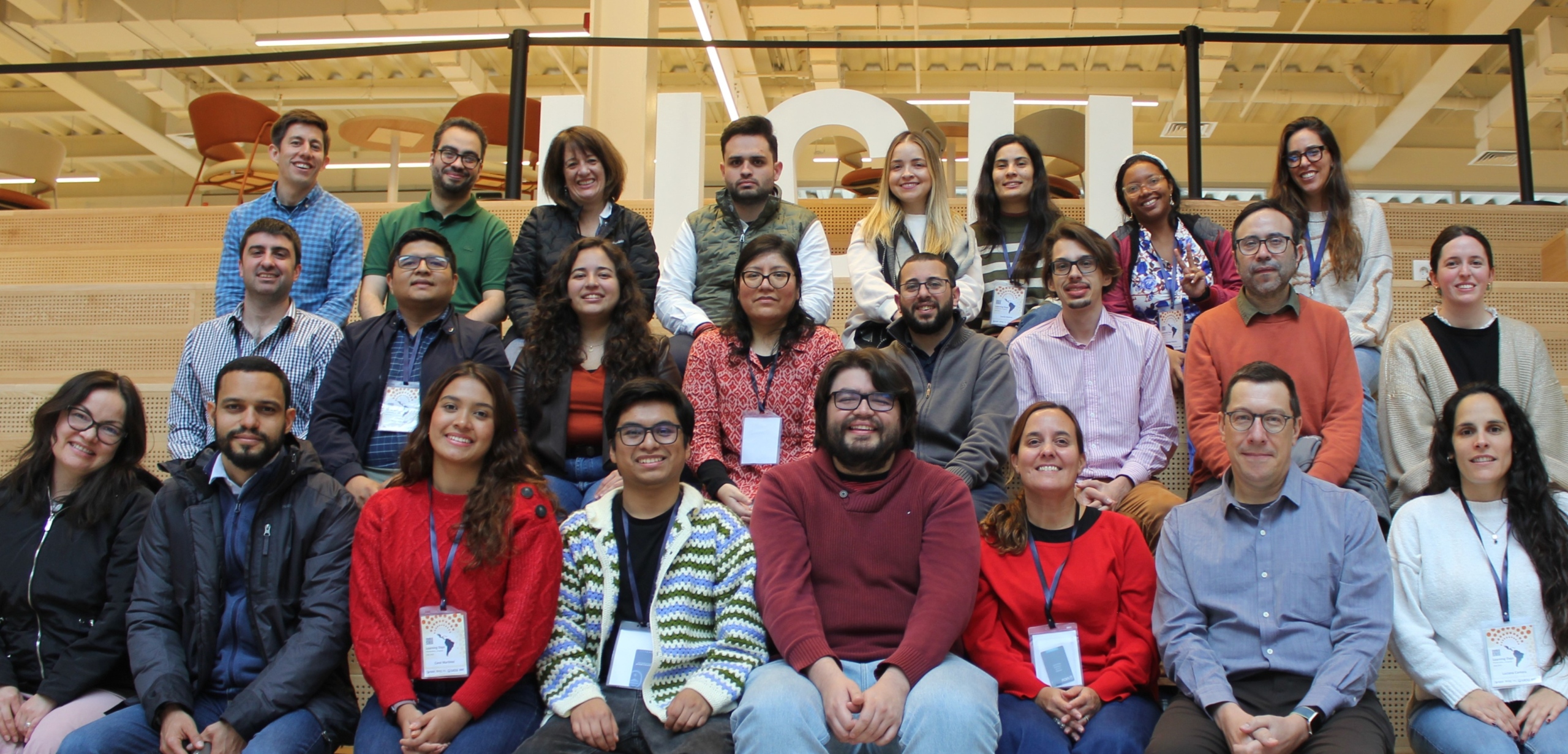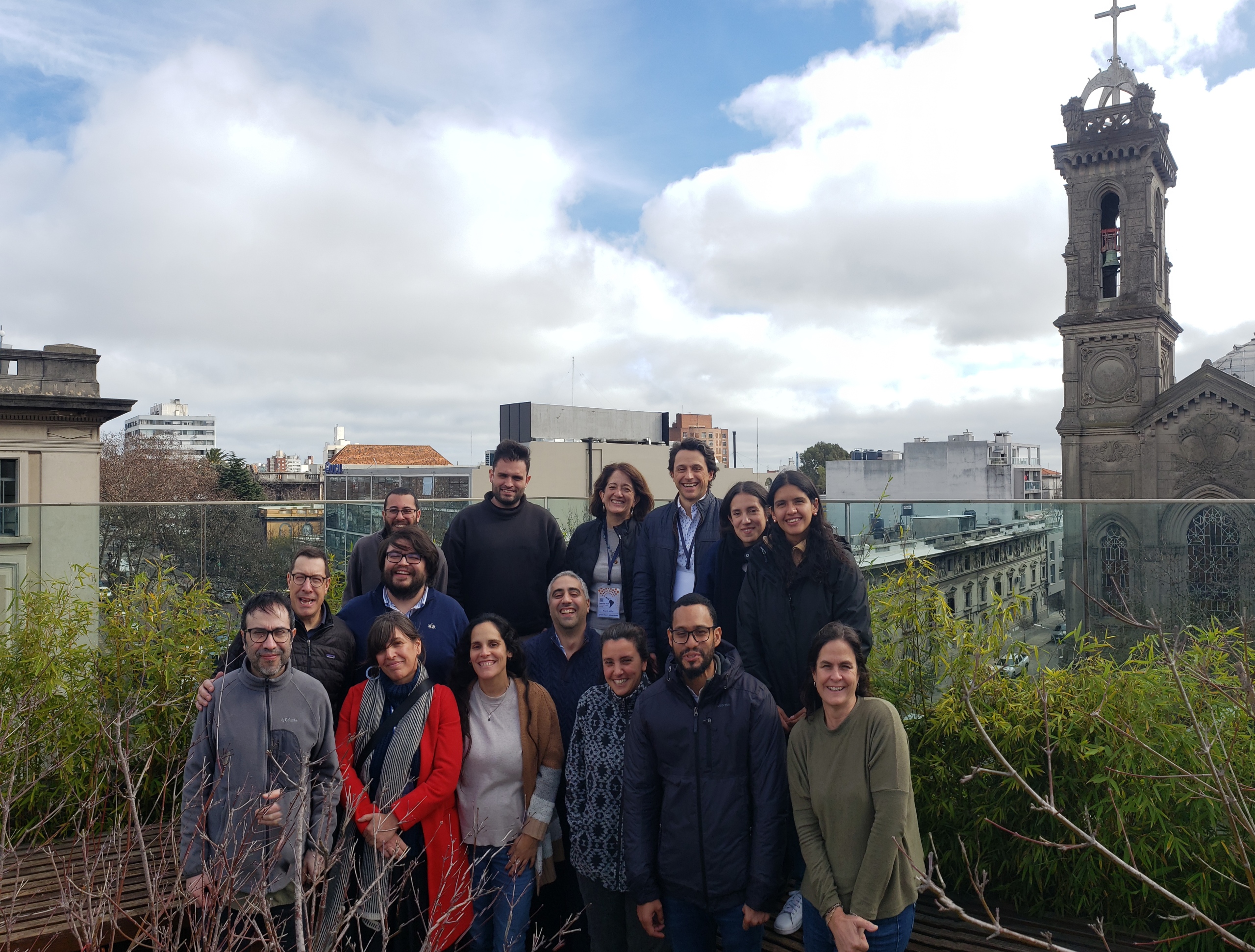Learning Days 17: Latin America Regional Hub Workshop &
Doctoral Dissertation Camp 2025
Organized by the host Universidad Católica del Uruguay, Universidad EAFIT. TREES and the Latin America Regional Hub of the global Evidence in Governance and Politics (EGAP) network, headquartered in Universidad de los Andes, Colombia.
July 21 to 25, 2025
Montevideo, Uruguay

Learning Days Workshop 2025
The EGAP LATAM Regional Hub will hold a Learning Days workshop in Montevideo, from July 21 to 25, 2025, in alliance with Universidad Católica del Uruguay.
This 5-day intensive workshop aims to develop familiarity with causal inference in field randomized experiments with a quantitative focus. It is intended for Latin America-based scholars, researchers and practitioners working in academic, non-governmental, and government organizations who carry out analyses related to governance, policy, and development issues. This training curriculum is based on accumulated knowledge from past workshops, as collected in the online coursebook: The Theory and Practice of Field Experiments: An Introduction from the EGAP Learning Days.
The workshop is organized by Hub’s Co-Directors Leopoldo Fergusson and Santiago Tobón and advised by Methods & Training Co-Directors Nahomi Ichino and Jake Bowers. The team of instructors includes experts on experimental research, including: Danilo Freire, Jake Bowers, Luis Maldonado, y Rosario Aguilar.
Click here to view workshop agenda
Workshop Participants
Brayan Alexis Condori Luque
Carmen Cecilia Polonia Rivera
Carol Andrea Martínez Algarra
César Enrique Herrera De la Hoz
Clara Agustina Elvers Fernández
João Arthur Lopes Figueiredo
Lucia Freira
Lucia Piriz Trindade
Lucía Suarez
Luciana Cantera Rosso
María Alejandra González Arenas
Matias Dodel
Mauricio Adrián Suárez Cal
Melissa Mariana González Caamal
Richar Quispe Cuba
Rosmery Juyo Juyo
Rudy Alejandro Herrera Mármol
Santiago Mateo Villamizar Chaparro
Doctoral Dissertation Camp
July 26, 2025

Doctoral Dissertation Camp
As part of our training program at Universidad Católica del Uruguay, we also partnered with TREES (Teaching and Researching Equitable Economics from the South) to also host a one-day Doctoral Dissertation Camp on July 26, 2025, designed for PhD students from across Latin America who are interested in receiving valuable and constructive feedback on their dissertation projects.
The primary goal of the camp is to provide a collaborative and supportive environment where participants can present their progress, exchange ideas with peers, and receive direct guidance from distinguished experts in the Global EGAP network.
Doctoral Dissertation Camp Participants
Analía Rivero
César Herrera
Joana Urraburu
Luciana Cantera
Olga Salamanca
For any questions, please contact: egap_latam@uniandes.edu.co